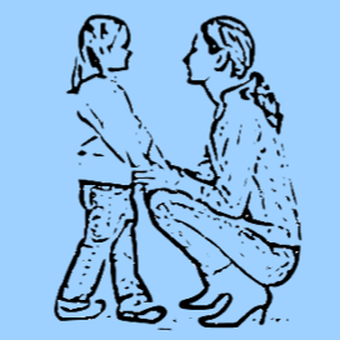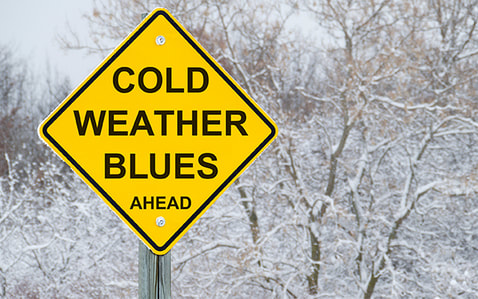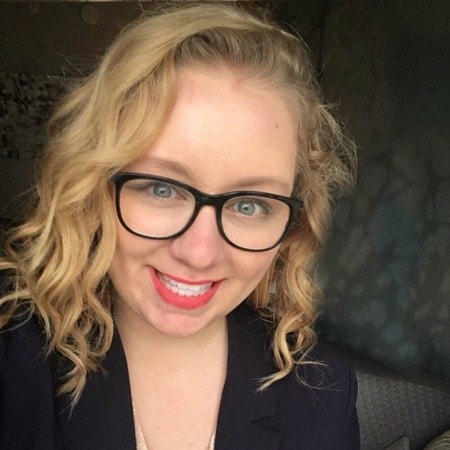 As we approach our second summer of the pandemic, some of us find ourselves thinking about what has been and what will come to be. With vaccines becoming more widely available and restrictions gradually lifting, many may feel as if we have come to a crossroads. While some might feel relief, others are feeling hesitant and anxious about what life will be like in the coming months. The constant re-evaluation of risk versus benefit and of what we personally feel comfortable doing versus what others are doing can be mentally exhausting. Sometimes it may seem hard, if not impossible, to think of the positives that we might have experienced over the past year. We hope the following twelve questions may help put things in perspective for some, and aid in reflecting on ways you might have coped, adapted, changed, and perhaps grown as a result of pandemic life experiences. Additionally, we hope that thinking more about these questions offers some insight, perhaps clarity and a sense of grounding in what still may feel like uncertain times. (Please note these questions were adapted from a Psychology Today article by Gregg Levoy, and the provided examples for some questions are not all inclusive).
We urge you to take some time to ponder the questions and your responses to them. Some find it helpful to write thoughts down in order to revisit and reflect on them further in the future. Ultimately, remember to be kind to yourself, have confidence in your choices, and remain true to what you determine to be best (given the information available to you at the time) as you continue to move forward in navigating life’s journey. If you find yourself in need of additional support, please do not hesitate to reach out to a trusted friend, clergy, or your Kesher worker. Tara Watkins, LICSW, the Kesher worker for Congregation Beth Sholom and Temple Emanu-El, is available at 401-527-7772 or [email protected]. Shana Prohofsky, the Kesher worker for Temple Sinai and Temple Torat Yisrael, is available at 401-619-2106 or [email protected]. References "Nearly 50% of people are anxious about getting back to normal, pre-pandemic life — here’s how to cope," CNBC Website, March 21, 2021. "20 Questions to Clarify What Your New Normal Will Look Like," Psychology Today Website, March 24, 2021.  By Tara Watkins, LICSW and Shana Prohofsky Pandemic life has impacted us all in many ways. We have continued to adapt to ever changing restrictions on how we interact with others and go about our daily routines. Combined with that have been concerns and worries that have added additional stressors to our already jam-packed lives. At the end of the day, many of us might just feel “done,” with no reserves left to be there for others. Yet, as humans, a sense of belonging and being in positive relationships with others is vital to our overall wellbeing. Please consider the following strategies for continuing to support healthy relationships in your life.
We hope this article helped you rethink some of your current strategies for fostering positive relationships in your life. If you would like help with processing current relationship struggles, or additional information and referral please reach out to the Kesher worker for your temple (Tara: 401-527-7772, [email protected] at Temple Emanu-El and Congregation Beth Sholom and Shana: 401-428-4084, [email protected] at Temple Sinai and Temple Torat Yisrael.) References https://www.psychologytoday.com/us/blog/in-the-mile/202010/9-tips-navigating-relationship-stress-during-covid https://www.psychologytoday.com/us/blog/meet-catch-and-keep/202010/the-pandemic-is-harming-relationships-is-yours-risk https://www.psychologytoday.com/us/blog/the-engaged-mind/202012/is-relationship-boredom-inevitable-during-covid https://www.psychologytoday.com/us/blog/social-instincts/202101/in-times-covid-19-happy-couples-are-doing-these-5-things https://www.psychologytoday.com/us/blog/conscious-communication/202006/navigating-social-interaction-in-world-covid-19 https://www.psychologytoday.com/us/blog/the-couch/201902/mothers-and-adult-daughters-building-healthy-relationship  Many may recall us saying in programs over the past few months, that while we are all experiencing the pandemic together we are also affected by it in different and unique ways. Just like a road trip, on some days, we may chug along okay, but on other days it may feel endless and we just want to shout, “Are we there yet?” Similar to a car trip, we know there will be an end to our current restrictions and the pandemic as a whole. But, we are not a hundred percent sure of how the rest of this experience will unfold or exactly when we will arrive at the endpoint. This continued uncertainty can provoke a variety of feelings such as anxiety, unease, and even physical and mental exhaustion (commonly referred to now as Quarantine Fatigue). Experts agree that to help manage these feelings, it is important to focus on the present, to have a schedule, and to follow a regular routine. Yet, many of us find ourselves bored with our day to day lives, or at a loss of how to make our days more interesting. Below is a list of suggestions, both recapping from previous articles we have written, as well as some new ideas that you might like to consider. Some coping strategies might help make the journey more pleasant, and others might be a one-time occurrence to make a difficult day a little less so. Please keep in mind that some suggestions will speak to some more than others, and not all suggestions are practical for everyone. Also, if you find yourself struggling to get through the days or having trouble processing difficult feelings, please reach out to a trusted friend, a member of the temple clergy, your Kesher worker, or call BH Link for 24/7 confidential support at 401-414-5465 (LINK). Please remember to try and be gentle with yourself and others. The end to this long road trip is approaching! 1) Connecting with Others:
3) Give your brain a workout:
4) Give your eyes a rest and let your ears do the work: Rhody Radio podcasts by the Rhode Island libraries are available on Spotify, Google Podcasts, and Apple Podcasts. Or, get updated on the latest happenings with talk radio. If music is more your thing, scroll through the stations until you find something enjoyable. 5) Searching for something new to watch?
6) Feed your spirit and mind:
Experts agree that time spent in some sunlight is good for our physical health and overall mood. Try raising blinds, opening curtains, and positioning furniture near a window for a dose of brightness. Or you might even want to try painting a wall or two a lighter color. 8) Get moving:
If you need assistance putting any of these ideas into practice, please reach out to Shana at 401-428-4084 or [email protected]. Reach out to Tara at 401-527-7772 or [email protected].  ,by Shana Prohofsky Have you experienced a life transition during COVID that has left you feeling adrift? Perhaps you are looking for a way to feel more anchored, less lonely, or less bored? Many of us have spent the past few weeks, during the High Holidays, reflecting on the past year. But what if we go even further and take an extended look into the past? What if this look back could provide us with a newfound sense of contentment with ourselves? In the book, Wise Aging: Living with Joy, Resilience, & Spirit, by Rabbi Rachel Cowan and Linda Thal, the authors propose a life review exercise, which aims to provide a chronologically descriptive, organized method of looking at our life’s journeys. The authors provide specific instructions on how to map out our lives, as if they are rivers, and to consider them stage by stage. Mapping allows us to explore the path of our personal river of life – where it has taken us, and where it might flow in the future. This exercise affords us with the opportunity to interpret the stories of our lives in multiple ways. We engage in nostalgia, we look for and recognize patterns, and we work towards attaining a non-judgmental relationship with ourselves. This new realization of our past can help us to feel more grounded in the present and comfortable moving forward into the future. Let’s explore the methods of interpretation and their benefits more closely. Engaging in nostalgia: Reminiscing is a normal reaction to stress and uncertainty. Focusing on positive moments of nostalgia offers us comfort, providing a temporary escape from emotionally stressful situations. Nostalgia also alleviates loneliness because in remembering a past event, we tap into pleasurable experiences, which are tied to persons with whom we shared those experiences, and we are reunited, if only in our minds, for just a moment. There are elements of nostalgic moments that you can bring into the present and incorporate into your self-care routine. Rediscover music, books, or television shows that you enjoyed in the past. Look at pictures of life events and reconnect with a family member or friend, by phone or in writing, sharing the memories with them. Eat a food that you found comforting and delightful in the past. Revel in these rediscovered experiences and find moments of happiness. Seeing patterns: While memories may tend to jumble together, when we look at events across our lifespan in chronological order, we can see that just like a river, periods of time in our life go rushing joyously by, but there are also periods of slow down and pools of stagnation brought on by loss or other challenges. We are able to see what came before, what came after, and what resources we were able to draw upon to get us to the next stage. Perhaps these resources were drawn from within us or from external support given by family, friends, or professional counselors. While some of the external supports might no longer be available to you, such as a loved one who has passed away, you can still draw on what you learned from them. Additionally, it might be easier to deal with the unpredictable nature of life during COVID, realizing that we have handled many changes before and adapted to difficult situations in the past. We can examine what we were able to control, and what was beyond our ability to control. The strength and resilience we gained from working through past struggles helps us in our ability to cope with our current situations. Finding contentment: Life review allows us to view past events with a more knowledgeable and forgiving eye. While we cannot change what happened in our lives, we can change how we perceive those events and what we can learn from them and apply to our lives. For example, maybe now we can see that the loss of a job led to a better opportunity, or a loss created the space for a new but different love. These realizations allow us to have a more accepting relationship with ourselves. By moving through the steps outlined above, we may find ourselves able to reflect on the events of our lives with a new understanding of who we are and where we have been. These gains in perspective allow us to feel more secure moving into the future, knowing we are stronger and more resilient when faced with challenges than perhaps we previously thought. Are you interested in mapping out your very own river of life? Please join me and my Kesher co-worker Tara on Zoom on Tuesday, October 13, 2020 at 12 p.m. for "And So It Flows," an expressive arts program inspired by the book Wise Aging: Living with Joy, Resilience, & Spirit by Rabbi Rachel Cowan & Dr. Linda Thal. During the program, we will guide you through a life review exercise to help you gain perspective on your personal journey. https://us02web.zoom.us/j/83134455874?pwd=eWZUR3RReUh2QXRWV1BEQmowNmlNQT09 If you would like to participate in this activity but are unsure if it might bring up unpleasant feelings, I encourage you to first discuss it with your personal mental health provider, or either Tara Watkins or myself. Please keep in mind that the BH Link hotline, 401-414-LINK (5465), is available to provide free 24/7 mental health support and consultation. The national suicide prevention hotline is 1-800-273-TALK (8255). Also, as the Kesher worker for the temple, I am available to connect you to necessary community resources to help address struggles you may be experiencing during these challenging times (phone: 401-428-4084 or [email protected]). Please note that Kesher is not for immediate emergency situations. Article References Breines, J. (2020, Mar. 18). 10 Ideas for Coping with Loneliness During Social Distancing. Psychology Today. https://www.psychologytoday.com/us/blog/in-love-and-war/202003/10-ideas-coping- loneliness-during-social-distancing. Campoamor, D. (2020, July 28). Why We Reach for Nostalgia in Times of Crisis. New York Times. Nytimes.com/2020/07/28smarter-living/coronavirus-nostalgia.html. Cowan, R., & Thal, L. (2015). Wise Aging: Living with Joy, Resilience, & Spirit. Dreher, D. (2020, Jan. 22). Why Loneliness Is Hazardous to Your Health. Psychology Today. https://www.psychologytoday.com/us/blog/your-personal-renaissance/202001/why-loneliness-is- hazardous-your-health.  By Tara Watkins, LICSW During the High Holy Days many of us find ourselves reflecting on the role of forgiveness in our lives. We look back on the past year, consider the mistakes that may have been made and explore ways to atone. Sometimes as we work to make amends, we may find ourselves forgetting an important piece of the forgiveness process, self-forgiveness. Due to the COVID-19 pandemic, many of us have struggled with increased family tensions, changing expectations, lifestyle restrictions, and uncertainty. We have also had to face new parenting challenges, complications with caring for older parents and loved ones from a distance, new job responsibilities (or perhaps loss of employment), not being able to be present during a loved one’s serious illness or end of life moments, and many other COVID related losses and struggles. With all these new complexities on our plates we might, unjustly, start to blame ourselves for things outside of our control. Robert Enright Ph.D in his Psychology Today article entitled “Whom Do I Forgive in the COVID Crisis?” states that sometimes those who care for others can develop a false sense that they never have done quite enough. We have to remember that the feelings we are experiencing now are normal and common experiences during the pandemic. We cannot forget that the ability to forgive ourselves for mistakes, both large and small, is critical to both our psychological and physical well-being. Studies have found that difficulties with self-forgiveness are frequently linked with self-harm behaviors such as eating disorders, substance abuse, and suicide attempts, among other problems (Breines, 2012). If you find yourself experiencing any self-harm behaviors, please speak with a trusted mental health professional or call one of the 24-hour hotline numbers listed at the bottom of this article. Shame and guilt are often felt by those who struggle with self-forgiveness. Although these emotions may seem similar for in both experiences, we feel bad about ourselves, they are different. For example, feeling guilty may be healthy when it opens doors that lead to positive behavior change. On the other hand, shame is often very unhealthy causing lowered self-esteem, feelings of unworthiness, and behavior that reinforces that self-image (Engel, 2017). One way to reduce feeling shame is to develop compassion for ourselves. According to psychotherapist Beverly Engel, compassion is the antidote to shame. Feeling compassion for ourselves does not release us from taking responsibility for our actions. But, it can release us from the negative self-talk that prevents forgiving ourselves and frees us to respond to the situation with more clarity. The following are a few suggestions that may help if you are struggling with forgiving yourself and letting go of negative self-judgment (adapted from Cowan and Thal, 2015).
Chag sameach and l’shana tovah! If you find yourself struggling with self-forgiveness I encourage you to reach out to a member of the temple clergy, for 24/7 mental health support consult BH link hotline 401-414-LINK (5465), or if for those 18 and under please call 855-KID (543)-LINK (5465). The national suicide prevention hotline is 1-800-273-TALK (8255). Also, as the Kesher worker for the temple I am available to connect you to necessary community resources to help address COVID related struggles you may be experiencing during these challenging times (phone: 401-428-4084 or [email protected]). Please note that Kesher is not for immediate emergency situations. _____________________________________________________________________________________ Beverly Engel L.M.F.T. “Healing Your Shame and Guilt Through Self-Forgiveness, posted June 1, 2017.https://www.psychologytoday.com/us/blog/the-compassion-chronicles/201706/healing-your-shame-and-guilt-through-self-forgiveness Emotional Well Being and Coping During COVID, Weil Institute of Neurosciences, University of California San Francesco, Department of Psychiatry and Neurosciences https://psychiatry.ucsf.edu/coronavirus/coping Rabbi Rachel Cowan and Dr. Linda Thal “Wise Aging: Living with Joy, Resilience and Spirit, Behrman House: New Jersey, 2015. Robert Enright, Ph. D. “Whom Do I Forgive in the COVID-19 Crisis?” Mar 24, 2020 Psychology Today. https://www.psychologytoday.com/us/blog/the-forgiving-life/202003/whom-do-i-forgive-in-the-covid-19-crisis Roger D. Williams, Jessica A. Brundage, and Erin B. Williams (May 2 2020) Moral Injury in Times of COVID, J Health Serv Psychol, 1–5. https://www.ncbi.nlm.nih.gov/pmc/articles/PMC7195905/  In the past few months, parenting has become exponentially more difficult as the days have gone by. With the onset of COVID-19, our lives became topsy-turvy with school closings and shelter in place orders. Then came more losses, whether in the form of cancellations of graduations, events, and many camps; employment; or as the loss of a loved one, friend, or acquaintance. More recently, the lifting of some restrictions has brought about mixed feelings and even anxiety about re-entry. In addition to the stressors brought forth by COVID-19, we have also witnessed atrocious acts of racial injustice. Any one of these happenings would test our coping skills but taken together they have left many of us feeling overwhelmed. As parents and caretakers, we face an even greater challenge. How do we address these events and changes with our children? How do we have the difficult conversations? Below, we offer some general tips, as well as some topic-specific resources that you may find helpful in framing your own thoughts in preparation for having these talks with your children. Prioritize your child’s emotional well-being As adults, we must acknowledge and deal with our own discomfort with difficult topics, yet still be willing to talk to our children about it. By avoiding the topic altogether, we may inadvertently signal that the topic is too scary to address, thereby increasing their anxiety. Prepare for the talk by examining your own thoughts and biases and try to anticipate questions that your children might have and prepare to answer them by exploring resources. Try out the talk and bounce ideas off another trusted adult before approaching your child. Seize the moment Use comments your child has made, or that your child has heard (intentionally or inadvertently) as a catalyst for the conversation. Ask them what they already know about the topic and go from there. If an opportunity does not arise naturally, consider using a book or other age appropriate media as a catalyst for the conversation (see the resource section below for child-appropriate books and media links).1 Use direct, concrete, age-appropriate language Euphemisms and metaphors can be confusing and scary, especially for young children. For example, when speaking to a grieving child, use concrete words like died or death instead of went to sleep or passed away. Model appropriate emotional responses Do not be afraid to allow your child to see that you are sad, angry, or disappointed. Be truthful, talk to them about how you are feeling, and show them how to manage these emotions in a healthy way. If you are struggling with these emotions yourself, reach out and ask for help from your clergy, your Kesher worker, or a mental health professional. Avoidance does not indicate a lack of understanding Children do not process in a linear fashion. Talking about it and then seeming to ignore the subject does not mean that they did not understand. They might be on information overload. Give them time and space to process their thoughts and emotions. It is not a one and done Children might then bring up the topic at random times. If they do not, do not assume they no longer want or need to talk about it. Check back in and invite them to readdress it with you.2 It is okay to not have all the answers There is no one right way to have these difficult conversations. Do not fear messing up. Be comfortable with saying, “I don’t know,” or “I have to think about that, and we can talk about it some more later.” Trust your gut instinct and follow your child’s lead to determine how much information they can handle and process. Above all else, listen to them, validate their feelings, and be there for them. Each family is unique and dealing with challenges in their own way. If you would like someone to help process and provide further guidance specific to your situation, please reach out to your Kesher worker. I am available by phone at 401-428-4084 or by email at [email protected]. Are you interested in learning more about how to help children navigate the grieving process? Please join me on Zoom, Thursday, July 9 at 8 p.m. as my Kesher colleague, Tara Watkins LICSW, facilitates a talk with guest speaker Ryan Loiselle LICSW, Program Director of Friend’s Way (Rhode Island’s only children’s bereavement center), on ways to help children and their families cope with grief and loss during COVID, the re-entry process, and beyond. ---------------- 1 Turner Ph.D., Erlanger A. (Aug. 13, 2017). "Race in America: Tips on Talking with Children About Racism." 2 Koslowitz Ph.D., Robyn. (Apr. 24, 2020). "Scared to Death to Talk to Your Kids About Death?" 3 Katherine Nguyen Williams Ph.D. (Jan. 27, 2020). "Telling Your Child or Teen About Kobe Bryant's Death." ---------------- Resources This list is by no means exhaustive, and we know that not every article with resonate with every family. If you need assistance locating additional resources, please reach out to Shana at [email protected] or 401-428-4084. Grief and Loss https://www.psychologytoday.com/us/blog/babies/202005/talking-young-children-about-death https://www.psychologytoday.com/us/blog/two-takes-depression/201612/the-dos-and-donts-talking-child-about-death https://www.psychologytoday.com/us/blog/going-beyond-intelligence/201708/mindful-meditation-the-mysteries-life-children (book recommendation with imbedded link to additional book recommendations) https://www.psychologytoday.com/us/blog/the-modern-child/202001/telling-your-child-or-teen-about-kobe-bryants-death (information about talking to teens about death, with information on access to social media and how it affects coping) https://www.kveller.com/camp-kveller-will-help-with-all-your-questions-and-concerns-about-jewish-summer-camp/ (camp closures) Racism https://www.pbs.org/parents/thrive/how-to-talk-honestly-with-children-about-racism https://www.npr.org/2020/06/03/869071246/how-white-parents-can-talk-to-their-kids-about-race https://www.kveller.com/what-to-say-and-read-to-your-children-right-now-about-race/ https://www.psychologytoday.com/us/blog/diverse-development/202006/the-dangers-colorblind-socialization https://www.psychologytoday.com/us/blog/the-race-good-health/201708/race-in-america-tips-talking-children-about-racism https://www.kveller.com/a-jewish-anti-racist-reading-list-for-children-of-all-ages/ (book recommendations) https://www.nytimes.com/2020/06/03/parenting/kids-books-racism.html (book recommendations) Re-entry anxiety https://www.today.com/health/how-deal-anxiety-around-re-entry-during-covid-19-crisis-t182743 Talking to Teens https://childmind.org/article/teenagers-and-reopening/ https://www.screenagersmovie.com/tech-talk-tuesdays/our-kids-need-us You can reach Shana on her work cell phone at 401-428-4084 or email her at [email protected]. You can find information on Jewish Collaborative Service's program on Managing Mental Health During COVID-19 here on their website.
 by Tara Watkins, LICSW Punxsutawney Phil may not have seen his shadow this year, but for some of us the hope of six potential less weeks of winter may still not be enough to stop what is commonly known as the winter blues or Seasonal Affective Disorder. About twenty percent of Americans experience some form of winter blues and an estimated 10 million experience Seasonal Affective Disorder. According to the National Institute of Mental Health, the main risk factors for SAD are age, sex, family history of depression, distance from the equator, and a history of depression or other mood disorders. Studies have shown that young adults and women are more likely to experience SAD, with three out of four being women. However, when men do experience SAD symptoms, they are usually more severe. So, what exactly is SAD? SAD is a type of depression that comes and goes with the four seasons. Symptoms may vary depending on the time of year. Typically, SAD manifests the most during the colder months of late autumn through winter – when days are shorter, darker and chiller. The exact cause for SAD is unknown. However, there is some evidence that it may be related to the body's level of melatonin and serotonin. Melatonin is a hormone secreted by the pineal gland that regulates the sleep-wake cycle. Darkness stimulates the production of melatonin, preparing the body for sleep. As the winter days get shorter and darker, melatonin production in the body increases and people tend to feel sleepier and more lethargic. Individuals with SAD may also have trouble regulating their levels of serotonin, a neurotransmitter that influences mood. Research suggests that people with SAD may produce less Vitamin D in response to sunlight. (Vitamin D is believed to play a role in serotonin activity.) Insufficiency of vitamin D is associated with clinically significant depression symptoms. There are a range of symptoms for winter SAD, but some of the most commonly reported include: fatigue (paired with oversleeping), trouble concentrating, chronically low moods, irritability, greater appetite, strong carb cravings (which can lead to weight gain), and greater desire to be alone. Self-care is important for everyone, but for those with the winter blues or SAD it is vital. Experts recommend monitoring mood and energy level, taking advantage of available sunlight, planning pleasurable and physical activities, approaching the winter season with a positive attitude, and, when symptoms develop, seek help sooner rather than later. Feeling like the winter blues or SAD might be getting you down? Below are a few other suggestions/strategies that you may wish to explore:
Life often gets in the way even for the most highly motivated among us, therefore it is important to have a plan and make it part of our regular routines help prevent and manage the winter blues or SAD. If you think you or someone you love may be experiencing the winter blues or SAD and would like help with addressing their symptoms or finding help, please reach out to [email protected] or 401-428-4084. _____________________________________________________________________________________ Reference Sources: "How can you cope with seasonal affective disorder?" by Maria Cohut, Ph.D. Medical News Today, November 24, 2017. "How to Cope with Seasonal Affective Disorder," by Lizz Schumer The New York Times, January 23, 2018. "Seasonal Affective Disorder (SAD)," by Lawrence Robinson, Jennifer Shubin, and Jeanne Segal, Ph.D. HelpGuide, October 2019. "Seasonal Affective Disorder" Psychology Today by Shana Prohofsky When making resolutions, many of us look to the past year to see what went well versus what needs improvement. As parents, many of us reflect on not only our own achievements and shortcomings, but those of our children, as well. This process can become especially difficult given the amount of attention that is given to parenting in our current culture. Social media posts, parenting blogs, and even parenting columns in well-known newspapers seem to be chock full of articles on parenting styles, and the subsequent judgment of parents who choose one style over another. There are articles on attachment parenting, free range parenting, helicopter parenting, mindful parenting, and bulldozer parenting just to name a few. But, for every so called scientifically backed method, there seems to be a counter method that is purported to be more effective. In looking into this topic, I came across an interesting Psychology Today article by Dr. Stephen Mintz, who asserts that these parenting styles and associated labels have nothing to do with the actual physical or emotional well-being of children. Rather, Mintz says these styles, which are all supported and refuted by different scientific studies, play into the anxieties and fears that we have about the type of world our children are living in. He ultimately concluded that this preoccupation with parenting style has prevented parents from parenting un-self-consciously. More simply put, instead of following our hunches about what is best for our children, we are inclined to set them aside and follow whatever is the current parenting trend. We find ourselves in a mental struggle between being the parent we would like to be and the parent we are expected to be. What are we as parents and caregivers to do when criticism, or even seemingly well-meaning comments are lobbed, whether it be following the meltdown in the grocery check-out line, a friend catching wind of misbehavior at school, or a top choice college placement not being secured? One way is to view the critique as misguided caring. Frame the comment by assuming that the person making the comment is worried and simply trying to help by doing or saying something. This person likely does not have enough information about the situation to give helpful advice, but perhaps there is no malicious intent. In this case, take the comment for what it is worth and move on secure in the knowledge that you, as the parent, are the most informed about what is going on and the best equipped to deal with the situation. But what if the comment is indeed hurtful? Advocate for yourself and your child. Let the person know that what has been said or done was upsetting. Although this could lead to an uncomfortable conversation, not saying anything leads to continued hurt feelings and even resentment. How do you start this difficult conversation? Hold off on giving an immediate, emotionally charged response. Once you have had a moment to regroup, put your feelings into words, and constructively address the comment with clarity. You can even suggest an action that would be constructive in the given situation, if you can. However, if the comment from another is truly ill-intentioned and mean-spirited, ignore it as purposeless negativity. By not responding to these harmful comments in a hasty, negative manner, you are in fact modeling self-control and positive behavior for your children. Parenting would be easier if everyone kept in mind that there is no one “right” way to successfully parent, and that no two children are exactly alike. Consistency, clear expectations, good listening skills, setting a good example, and seeking outside or professional support when needed are all important components of parenting. While there will most certainly be things that do not go well, it is important to focus on the big picture, not the minutiae of day to day life. Are you hitting bumps in the road on the journey of parenthood? Are you looking for resources? Let’s talk. Please contact me by phone at (401) 428-4084 or by email at [email protected]. Here are some other sources on this topic: Kira Asatryan, "Five Ways to Survive Criticism from Family Members," Psychology Today, November 16, 2015 Maurice J. Elias, Marilyn E. Gootman and Heather L. Schwartz, The Joys and Oys of Parenting: Insights & Wisdom from the Jewish Tradition. Springfield, NJ: Behrman House. Apple Sauce or sour cream on your latkes? If only this was the question when everyone talks about the December dilemma.
Winter holidays can provide shared experiences ripe with warmth, joy, and caring through the collective partaking of food, music, ceremony, and tradition. Yet, for many, the days surrounding Christmas and Chanukah can be a time of emotional turmoil and struggle for harmony. The choice to observe Chanukah or Christmas, both, or neither can weigh heavily on the minds of individuals and families. There is often the desire to avoid hurt feelings, and even disapproval from others, within families, or even in the larger community. If you are wrestling with the December dilemma, or you just want to learn more about it, the following links address the topic from many different perspectives, and there is an abundance more easily found on the internet: Redefining the So-Called December Dilemma by Rabbi Josh Brown https://reformjudaism.org/blog/2012/12/06/redefining-so-called-december-dilemm A Rabbi’s Take on the Whole Celebrating Christmas-and-Hanukkah Thing by Rebecca Einstein Schorr https://www.kveller.com/a-rabbis-take-on-the-whole-celebrating-christmas-and-hanukkah-thing/?_ga=2.188360296.1783103058.1571159694-822958029.1571159694 Happy Hanumas? Ditch Season’s Greetings by Linda K.Wertheimer https://reformjudaism.org/blog/2010/11/18/happy-hanumas-ditch-seasons-greeting Actually, You Can’t Celebrate Hanukkah AND Christmas by Jordana Horn https://www.kveller.com/actually-you-cant-celebrate-hanukkah-and-christmas/ I’m a Rabbi and I Love Christmas by Howard Goldsmith https://forward.com/scribe/416458/im-a-rabbi-and-i-love-christmas/ My Orthodox Jewish Kids are Obsessed with Christmas by Rivki Silver https://www.kveller.com/my-orthodox-jewish-kids-are-obsessed-with-christmas/ We at the Kesher program do not advocate for any one position. There is no one size fits all answer that applies to every person or every family’s situation. However, we do feel it is important to feel at peace with your decisions and practices. The Kesher program is available to offer emotional support and practical resources to guide you through the winter holiday season. |
Samantha ClarkSamantha Clark is part of the Kesher Worker team at Temple Sinai. Kesher is the congregational outreach program of Jewish Collaborative Services of Rhode Island, funded by the Jewish Alliance of Greater Rhode Island and private donors. Katie can be reached at 401.415.8213 or by emailing Archives
April 2021
Categories |

Affiliated with the Union for Reform Judaism
30 Hagen Avenue • Cranston, RI 02920 • 401-942-8350 Office: dottie@templesinairi.org Rabbi Jeffrey Goldwasser: [email protected] |
Want to sign up for the weekly Sinai Scroll email?
Click here to receive weekly updates on Temple services, events and a message from the Rabbi. |


 RSS Feed
RSS Feed

